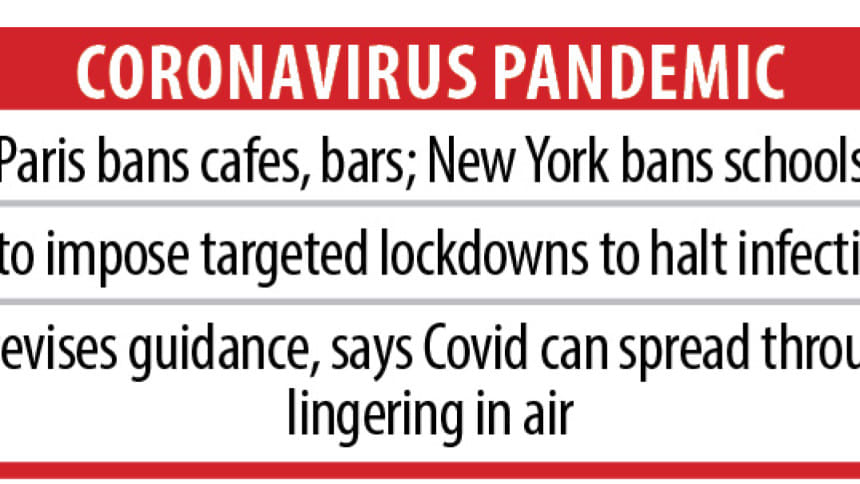Downturn not as bad as feared
Amid a flood of government spending, the global downturn sparked by the coronavirus pandemic will not be as bad as originally feared, IMF chief Kristalina Georgieva said yesterday, but she warned that the crisis is far from over as coronavirus cases surge again around the world.
"The picture today is less dire ... allowing for a small upward revision to our global forecast for 2020," she said in a speech ahead of IMF-World Bank autumn meetings next week, when the IMF is due to present its updated forecasts.

In June, the Washington-based crisis lender projected a nearly five percent contraction of global GDP, but results in the second and third quarters were better than expected.
Georgieva credited the "extraordinary policy measures that put a floor under the world economy" which amounted to $12 trillion in fiscal support to households and firms.
But she warned governments not to prematurely withdraw the help they have provided, since the outlook for next year is mixed and rife with uncertainties and risks.
After more than a million deaths, "this calamity is far from over. All countries are now facing what I would call 'The Long Ascent' -- a difficult climb that will be long, uneven, and uncertain," Georgieva said.
In the United States and Europe the downturn, though painful, was not as bad as economists feared at the outset, and China is seeing "a faster-than-expected recovery."
But the news elsewhere is bad: "In low-income countries, the shocks are so profound that we face the risk of a 'lost generation,'" she said.
Low-income countries have not had the resources to spend as much to support jobs and businesses, and also will need help to deal with their debt burden, including through more grants and debt restructuring.
She likened the crisis to World War II when leaders "forged a better world in the worst possible moment," and called for governments to continue support for workers as long as it is needed, while spending to create a better, more equitable, economic system.
Her statement came after a second wave of the coronavirus in Europe again imposed tough curbs on societies.
France yesterday shut bars and cafes in Paris after the reported nearly 17,000 new coronavirus cases on Saturday alone.
The coronavirus has continued to ravage the US: New York governor Andrew Cuomo announced Monday that schools would temporarily close in nine neighborhoods experiencing an uptick in Covid-19 infections.
Yesterday, Malaysia's Prime Minister Muhyiddin Yassin said targeted lockdowns would be imposed in areas with high rates of coronavirus infections, as the country grapples with a sharp spike in cases over the past two weeks. The health ministry reported 691 new COVID-19 cases and four deaths yesterday.
Meanwhile, US Centers for Disease Control and Prevention (CDC) on Monday said Covid-19 can spread through virus lingering in the air, sometimes for hours, acknowledging concerns widely voiced by public health experts about airborne transmission of the virus.
In Monday's guidance, CDC said there was evidence that people with COVID-19 possibly infected others who were more than 6 feet away, within enclosed spaces with poor ventilation.
Under such circumstances, CDC said scientists believe the amount of infectious smaller droplet and particles, or aerosols, produced by the people with COVID-19 become concentrated enough to spread the virus.

 For all latest news, follow The Daily Star's Google News channel.
For all latest news, follow The Daily Star's Google News channel. 



Comments